Parliamentary Privilege
Meaning of Parliamentary PrivilegeParliamentary privilege is the term used to describe the laws relating to:
The term 'privilege' refers not to any special benefits or entitlements enjoyed by Members of Parliament but to the immunity from ordinary law that, together with the potential exercise of parliamentary powers, enables the Houses of Parliament to carry out their primary functions of legislating, debate and inquiry more effectively and independently. Parliamentary privilege in relation to Australian parliaments derives from the Westminster parliamentary tradition. This tradition is preserved and augmented by legislation in each jurisdiction. In Tasmania this consists primarily of the Parliamentary Privilege Act 1858 and elements of the Defamation Act 2005 and the Criminal Code Act 1924. ImmunitiesProbably the most important parliamentary immunity is freedom of speech in Parliament. Members of Parliament, witnesses and others taking part in the proceedings of Parliament cannot generally be sued or prosecuted for what they say or do in the course of parliamentary proceedings. Papers and documents published by the authority of either House of Parliament are similarly protected as are petitions to Parliament. Another more minor immunity is based in the concept of the separation of powers between the executive, the legislature and the judiciary. Under the Jury Act 2003 MPs, as lawmakers, are exempt from jury duty. Parliamentary immunities are not unlimited. The Constitution Act 1934 provides that an MP may lose his or her seat in certain circumstances including entering into certain types of government contracts and accepting an office for profit. The Parliamentary (Disclosure of Interests) Act 1996 requires MPs to disclose certain pecuniary interests. A Member who fails to lodge a return, disclose relevant interests or who provides false or misleading information is liable to be held in contempt of Parliament. In addition the Code of Ethical Conduct adopted into its Standing Orders by the House of Assembly in 1996 recognises the obligation of Members to act responsibly and ethically in carrying out their duties. PowersConduct of InquiriesParliament's major function is to legislate. In order to do so effectively, informed debate and scrutiny of the activities of executive government must take place. To these ends Parliament is empowered to make the necessary inquiries to procure the information it requires. This power is underpinned by the potential to punish for contempt. Parliamentary Privilege Extends to the Operation of Parliamentary Committees.The power to conduct inquiries is usually delegated to committees of the Parliament. In Tasmania legislation dealing specifically with individual committee and standing orders and resolutions of the Houses of Parliament that govern the activities of the various committees reinforces the power to call witnesses, compel answers and require the production of documents. Witnesses appearing before some parliamentary committees are accorded the same protection and privileges as witnesses appearing before the Supreme Court. Witnesses are generally protected in relation to threats or intimidation against them by the powers of the Parliament to punish contempt. Both verbal and documentary evidence are covered by the parliamentary immunity from action in defamation. Punishment of ContemptContempt of Parliament is directly comparable with contempt of court. The Parliamentary Privilege Act 1858 sets out a number of instances of contempt including disobedience to an order for attendance or production of documents by either House or a parliamentary committee; refusing to answer questions put by a House or a committee; threatening or bribing MPs; and creating a disturbance in or near Parliament House. The act does not however intend to limit the powers of Parliament. Section 12 provides:
Each House of Parliament may direct the Attorney-General to prosecute, in the Supreme Court, in relation to offences committed against it to the same extent that the English House of Commons may direct the English Attorney-General to prosecute in relation to offences committed against the Commons. The maximum penalty in Tasmania is two years' imprisonment, a fine of $20 000 and imprisonment until the fine is paid, or both. |
